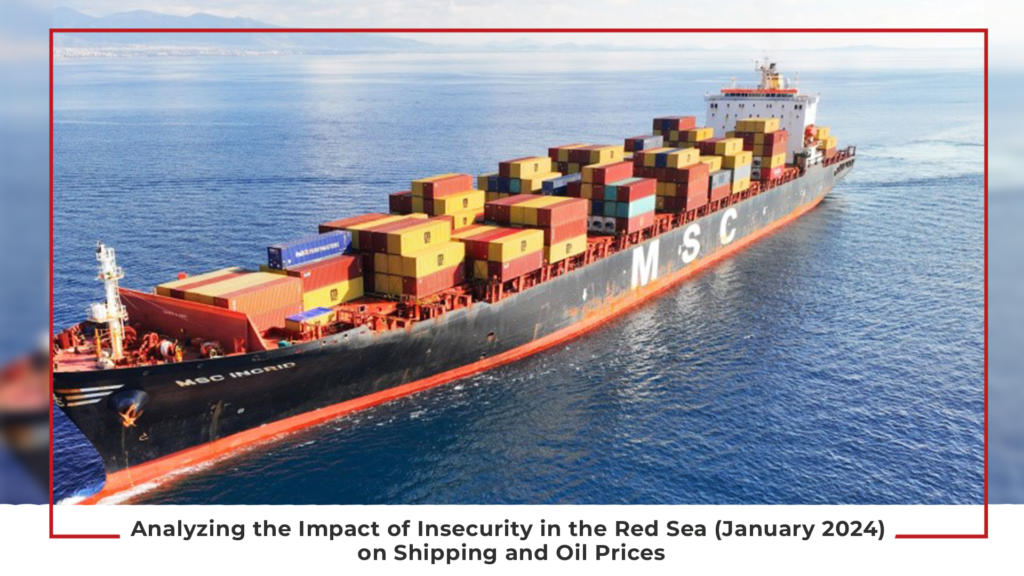The recent rise in insecurity in the Red Sea, primarily due to attacks by Houthi militants in Yemen, has generated significant concerns about its impact on global shipping and oil prices. Here’s an analysis of the situation:
Impact on Shipping:
- Increased Shipping Costs: Diverting routes around the Cape of Good Hope adds around 10 days to journeys, significantly increasing fuel consumption and labor costs. This translates to higher freight rates, adding to the burden on importers and exporters, potentially leading to:
- Higher Consumer Prices: Increased shipping costs ultimately get passed on to consumers through higher prices for goods.
- Supply Chain Disruptions: Delays in shipments can disrupt manufacturing and production cycles, potentially leading to product shortages.
- Global Trade Slowdown: Increased costs and uncertainty could discourage some trade through the Red Sea, impacting global trade flows.
- Insurance Premiums: The perceived risk of attacks has led to higher insurance premiums for ships transiting the Red Sea, further adding to shipping costs.
Impact on Oil Prices:
- Direct Impact: While there haven’t been major disruptions to oil tanker movements so far, the rising tensions raise concerns about potential disruptions in the future. Any sustained closure of the Suez Canal, a critical oil transportation route, could trigger significant price spikes.
- Indirect Impact: The rise in shipping costs indirectly contributes to higher oil prices due to increased transportation costs for producers and distributors.
- Uncertainty and Risk Premium: Geopolitical risks in the region can lead to higher oil prices due to increased market uncertainty and a “risk premium” demanded by investors.
Current Context and Future Outlook:
- International Pressure: The UN Security Council has condemned the attacks and called for the release of seized vessels, potentially leading to diplomatic efforts to de-escalate the situation.
- Market Fluctuations: Oil prices and freight rates are likely to remain volatile in the near term, fluctuating based on developments in the region and market sentiment.
- Long-Term Impact: The long-term impact will depend on the course of the conflict in Yemen and the effectiveness of international efforts to stabilize the region. A prolonged period of insecurity could have substantial repercussions for global shipping and oil prices.
Additional Points to Consider:
- The resilience of the global shipping industry: alternative routes and strategies can mitigate the impact of disruptions to some extent.
- The role of alternative energy sources: Increased reliance on renewable energy sources could reduce dependence on oil transported through the Red Sea in the long run.
Overall, the insecurity in the Red Sea poses a significant risk to global shipping and oil prices. While the full impact is still unclear, it’s crucial to monitor the situation closely and consider potential mitigation strategies to minimize disruptions to global trade and energy markets.

